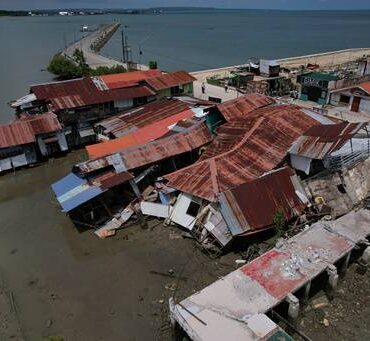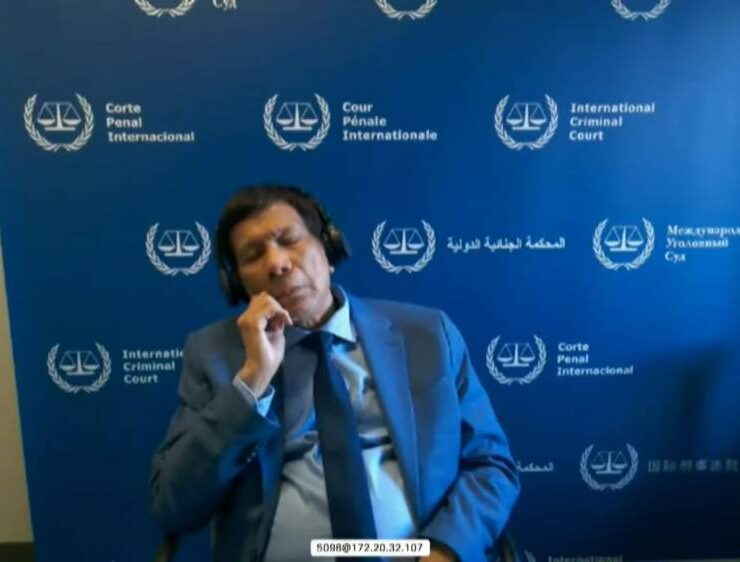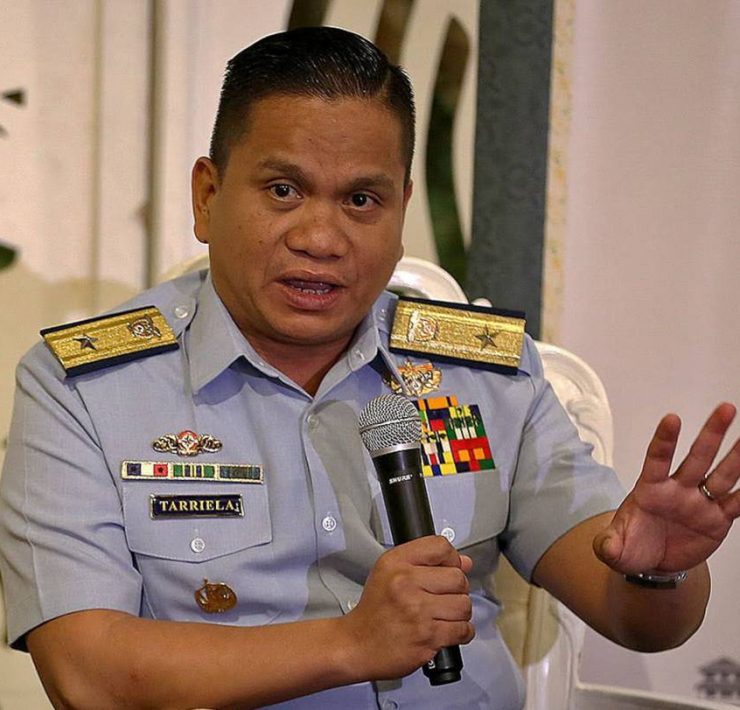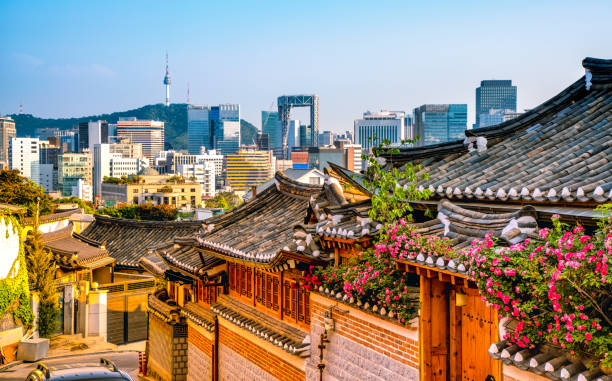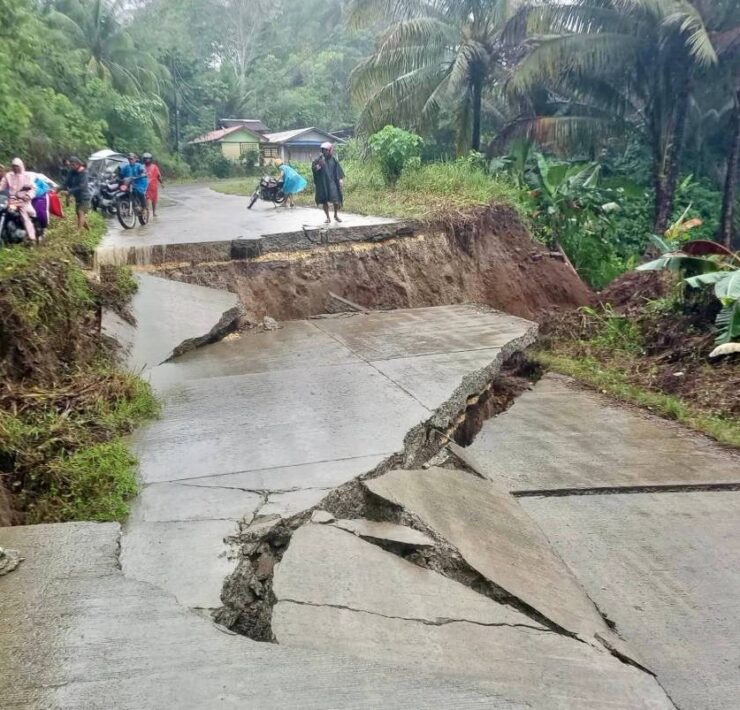Antitrust watchdog PCC also tapped for flood probe
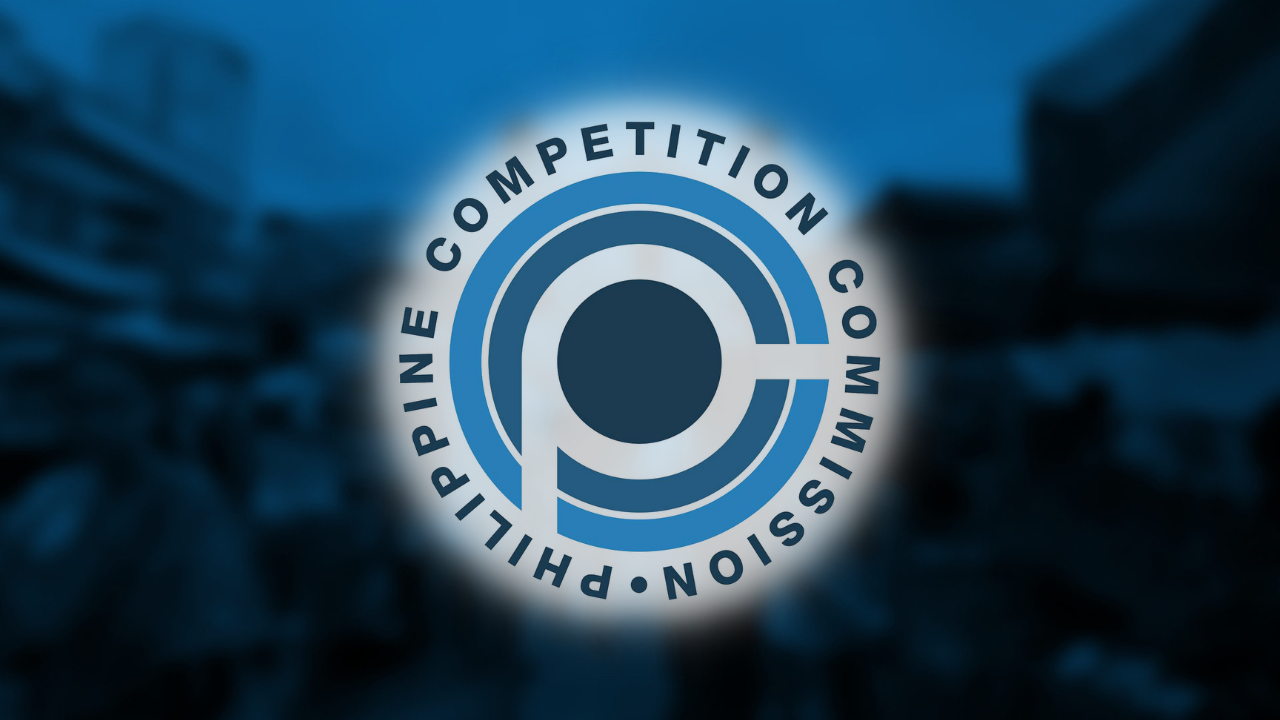
The construction firm cofounded by resigned Ako Bicol party list Rep. Elizaldy Co and another owned by the Discaya couple are among the companies included in complaints related to bid rigging and manipulation that were referred by the Department of Public Works and Highways (DPWH) to the government’s antitrust body for the possible filing of cases.
In its referral to the Philippine Competition Commission (PCC), the DPWH claimed that St. Timothy Construction Corp., Wawao Builders, IM Construction Corp., SYMS Construction Trading, and officials and employees of the DPWH in Bulacan, as well as Sunwest Inc. and officials and employees of the DPWH regional office in Mimaropa (Mindoro, Marinduque, Romblon, Palawan) may have violated the Philippine Competition Act (Republic Act No. 10667), which was signed into law in 2015.
The PCC was created in January 2016 to implement the national policy of prohibiting anticompetitive agreements, abuse of dominant position and anticompetitive mergers and acquisitions.
As the antitrust authority of the country, the PCC is mandated to conduct inquiry, investigate, and hear and decide on cases involving violations of the PCA, its implementing rules, and other competition laws.
Investigations on possible violations of the PCA can be triggered by a verified complaint, motu proprio or PCC’s own initiative to look into a case, or a referral by a concerned regulatory agency.
Top contractors
Co is a cofounder of Sunwest while St. Timothy is owned by the family of contractors Pacifico “Curlee” and Cezarah “Sarah” Discaya. These companies were among the top 15 construction firms that bagged the most number of flood control projects from the government from 2022 to 2025.
“The referrals include inspection reports, bid documents, and other relevant documents that may support the PCC Competition Enforcement Office’s (CEO) ongoing preliminary inquiry into possible bid-rigging and collusion among contractors,” the PCC said in a statement on Friday.
The DPWH said officials and employees of the agency’s Mimaropa office were also allegedly involved in the case since “despite irregularities surrounding flood control projects in Oriental Mindoro, regional officials failed to act and, instead, continued the projects awarded to Sunwest, Inc.”
This was on top of the Independent Commission for Infrastructure’s (IFI) move, asking the Office of the Ombudsman to study the filing of graft complaints against Co and 17 others, including DPWH officials and Sunwest, over an allegedly substandard flood control project in Oriental Mindoro worth P289.5 million.
Co, the former chair of the House appropriations committee in the 19th Congress from 2022 to 2025, was accused of getting billions of pesos in kickbacks by contractors and DPWH officials who testified in congressional inquiries into flood control projects. Co had repeatedly denied these allegations.
In a separate complaint, the DPWH cited Wawao, IM Construction, SYMS, St. Timothy and officials and employees of the DPWH Bulacan First District Engineering Office over alleged irregularities in the procurement of several flood control projects in the province unearthed during congressional hearings.
According to the agency, preliminary evidence, including the admissions of Curlee Discaya and former DPWH Undersecretary Roberto Bernardo before the Senate blue ribbon committee, “also suggests collusion among the involved contractors and officials” which violates the Section 14, Chapter III of the PCA which prohibits certain anticompetitive agreements between competitors.
Fines
Christian Loren de los Santos, director of the PCC CEO, said they were gathering evidence, such as bid submissions and possible communication exchanges, to determine whether government officials and employees and the contractors violated the law.
“The referrals follow testimonies presented during recent congressional hearings on the flood control controversies, which may likewise be used as evidence in the PCC’s investigation,” the commission said.
Under RA 10667, entities that are found guilty of engaging in anticompetitive agreements such as bid-rigging may face administrative fines that vary based on the number of offenses committed.
A fine of up to P100 million may be imposed on the first offense. For the second offense, the fine ranges from P110 million to P275 million.
For the third and subsequent offenses, the fine increases to a range of P165 million to P275 million.
Entities that enter into any anticompetitive agreement may face imprisonment of two to seven years and pay a fine of not less than P50 million but not more than P250 million.
“When the entities involved are juridical persons, the penalty of imprisonment shall be imposed on its officers, directors, or employees holding managerial positions, who are knowingly and willfully responsible for such violation,” the law states.
According to the PCC, individuals or entities involved in cartel conduct, including bid-rigging, price fixing, market allocation or output restriction, may apply for its leniency program.
Through this initiative, the antitrust body offers immunity from suit or a reduction of administrative fines for voluntarily disclosing their participation in anticompetitive agreements and cooperate fully with its investigation. Full immunity, however, is granted to only one applicant per violation.
Prominent cases
PCC has handled some prominent cases in the past.
It was involved in the review of PLDT and Globe Telecom’s joint acquisition of San Miguel Corp.’s telco unit in 2016 for almost P70 billion.
However in July 2016, PLDT and Globe sued the antitrust body for launching a review and sought a temporary restraining order (TRO) or writ of preliminary injunction to stop the PCC’s investigation. The TRO was issued on Aug. 26, 2016. In February 2017, the Court of Appeals issued a rare gag order against PCC at the request of PLDT.
In May 2017, PLDT and Globe Telecom completed their acquisition of SMC’s telco assets, making their final joint payment to SMC while defying the competition watchdog’s request to hold off until the courts make a final ruling.
In August 2019, the PCC signed a memorandum of agreement with the Energy Regulatory Commission (ERC) to collaborate on investigations that involve power sector players.
The PCC was reportedly assessing whether power plant outages were valid “unplanned breakdowns” that inevitably affected supply conditions or were actually “manipulated” in order to raise electricity prices.
It earlier said it would look into allegations of possible collusion or abuse of dominance of certain power generators following “simultaneous shutdowns that may have caused an artificial supply shortage and consequently a hike in electricity prices.”
In September 2024, the PCC CEO charged a group of vegetable traders for entering into anticompetitive agreements for the supply of imported onions in the Philippines.
As the PCC’s investigative and prosecutorial arm, the CEO claimed that these vegetable traders, despite being competitors, conspired to manipulate the onion market in the Philippines from 2019 to 2023. The traders, who imported onions from China, the Netherlands, and India, allegedly worked together to control prices and limit competition. —WITH A REPORT FROM INQUIRER RESEARCH














